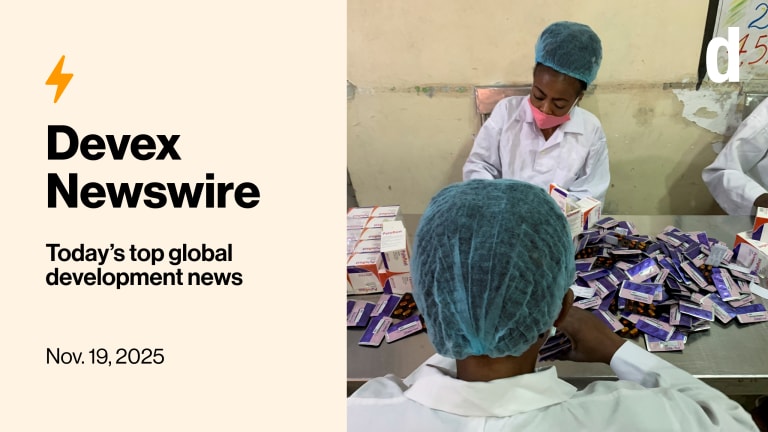
Democracy is widely supported in Latin America and the Caribbean. However, institutions and policymakers don’t always enjoy the same positive perception, according to recent Latinobarómetro surveys. Clearly, anti-corruption demonstrations, lack of representation, as well as universal demands for quality education, health and transportation all respond to citizens' priorities and overall dissatisfaction with institutions’ performance. Latin Americans want better governments, stronger democracies and improved public services for all.
Young people in the region have been playing a key role in recent peaceful demonstrations that demand more effective and transparent governments. And they do so not only by taking the streets but also by playing a role in their own communities and — increasingly — on social networks, bearing in mind that Latin America and the Caribbean has the youngest and one of the fastest-growing Internet populations worldwide.
The region has more than 150 million young people between 15 and 29 years but has a great challenge ahead: curbing inequality in decision-making and public policy shaping. Institutionalized gaps must be closed, such as the scarce opportunities for participation, interaction and monitoring of public policies if we want to achieve more equal societies: for women, men, lesbian, gays, bisexuals, transgendered and intersex, and people of African and indigenous descent.
A closer look into Latin America and the Caribbean’s parliaments reveals that young people are scarcely represented, especially women. Among members of the parliament, only 2.7 percent of males and 1.3 percent of females are under 30 years old — despite the fact 1 in 4 Latin Americans is young. Among all parliamentarians under 40 years, 15 percent are men, while less than 6.5 percent are women.
Today’s young people are also the best educated in the history of Latin America and the Caribbean, and we need to facilitate their participation in decision-making and public policy shaping, bringing in views from different groups and communities — with all their diversity. This means, of course, not only listening to them but also creating spaces and improving conditions for their effective political participation and contribution to society. Moreover, it also entails a firm commitment to boost employment opportunities, to improve the quality of public education and health services and to increase access to loans. These are our youth’s demands — and we must address them.
A recent global survey corroborates priorities and expectations among youth. Almost 60 percent of the more than 7 million voters in the My World survey — a U.N. crowdsourcing platform to assess people's priorities for the new post-2015 development agenda — are young men and women aged 16-30. More than a million young survey participants in the Americas ranked their priorities in the following order: good education, better employment opportunities, better health care, affordable and nutritious food, and honest and responsive governments.
In line with UNDP’s Youth Strategy, we work to support public policy approaches that take into account different generational needs. This entails supporting young people to take part in decision-making, to voice their concerns and demands and, importantly, to boost youth leadership.
In our region, we have promoted the participation of young Latin Americans in consultations around the post-2015 agenda. Our youth platform JuventudConVoz.org, for example, brings together young women, men and representatives of indigenous peoples, of the LGBTI community and others, strengthening their leadership skills through training and participation in major regional meetings such as the IV Young Americas Forum, which takes place in Panama this week ahead of the VII Summit of the Americas.
More than ever, we have a unique opportunity to address and reduce the existing gaps between rights, expectations and policies. I firmly believe that young Latin Americans are key allies who are already involved in finding solutions within their communities and engaging in social and political movements — in spite of the scarce resources to facilitate their effective participation.
Boosting youth participation in making decisions and policies is vital — not only to improve their own lives, but also to strengthen democratic governance, reduce inequalities and pave together the region’s path toward sustainable development.
Join the Devex community and access more in-depth analysis, breaking news and business advice — and a host of other services — on international development, humanitarian aid and global health.








